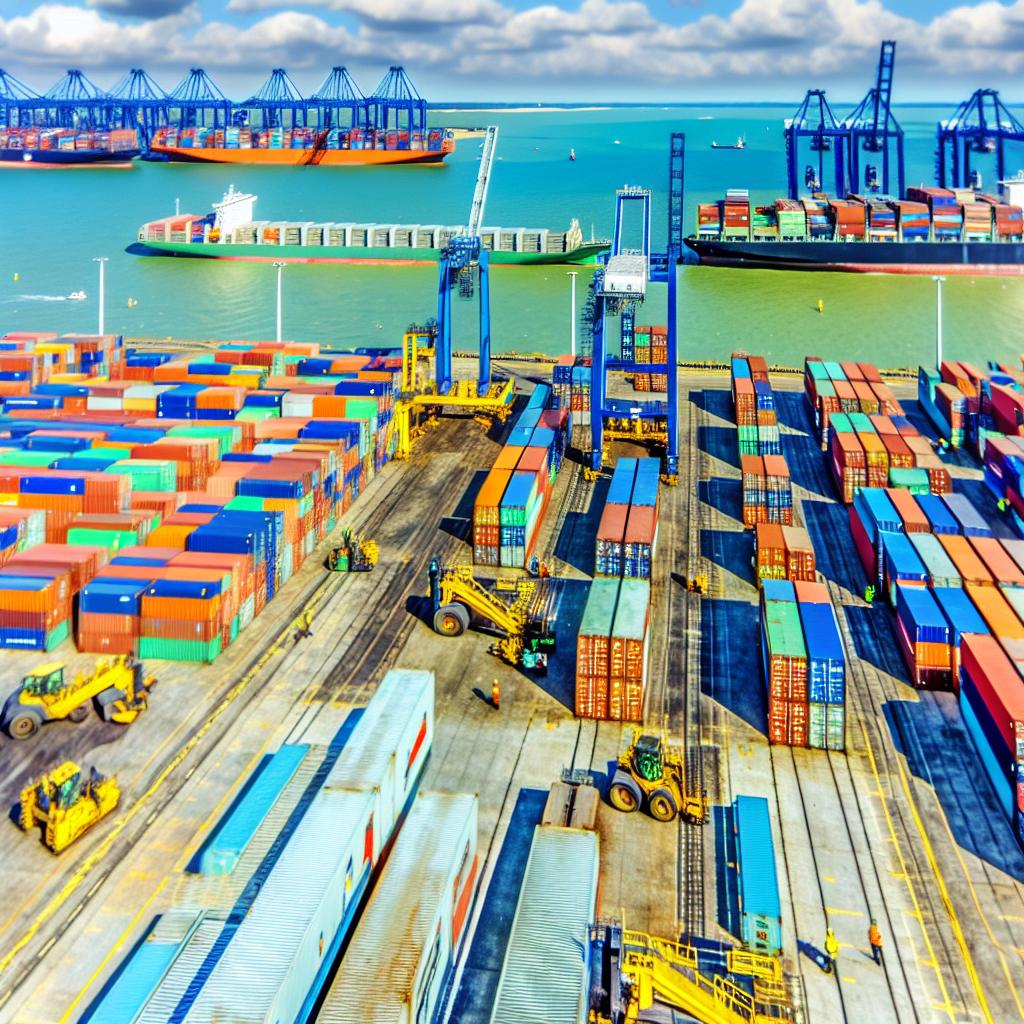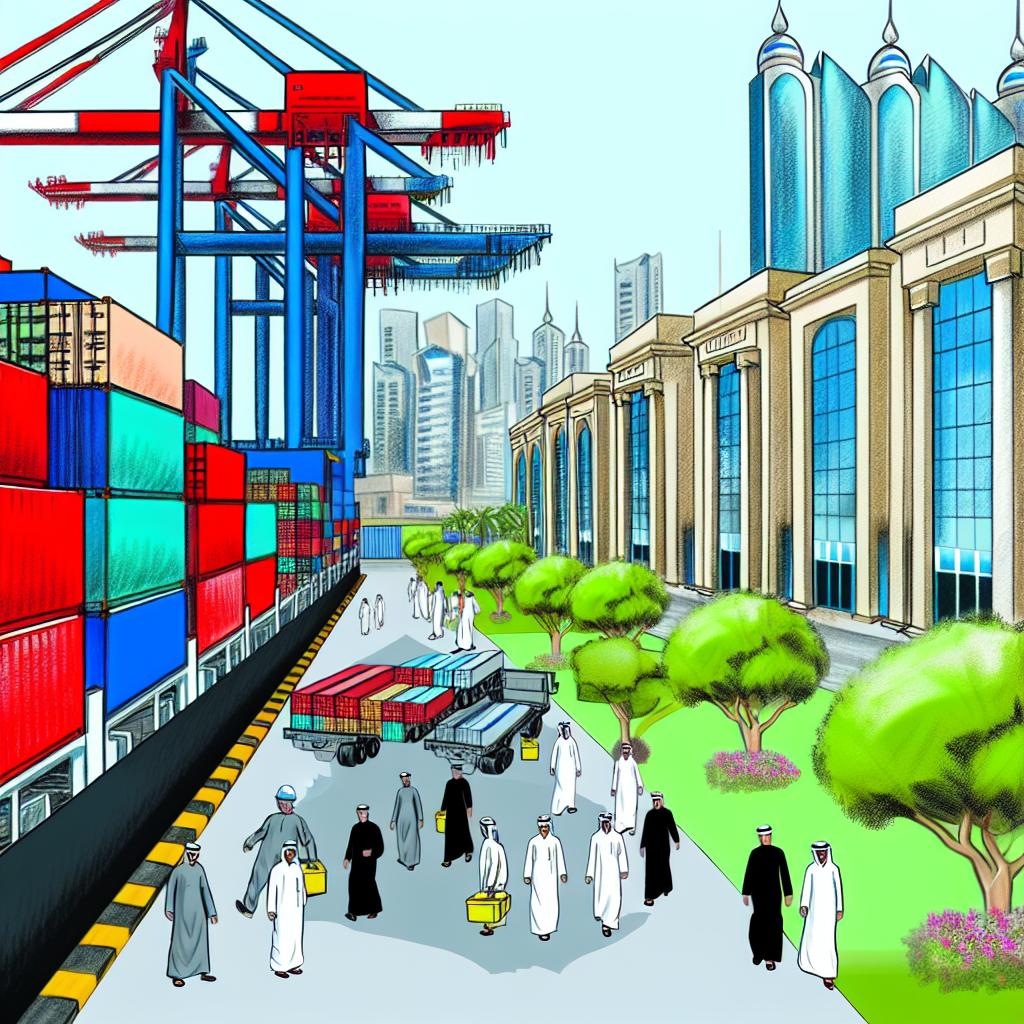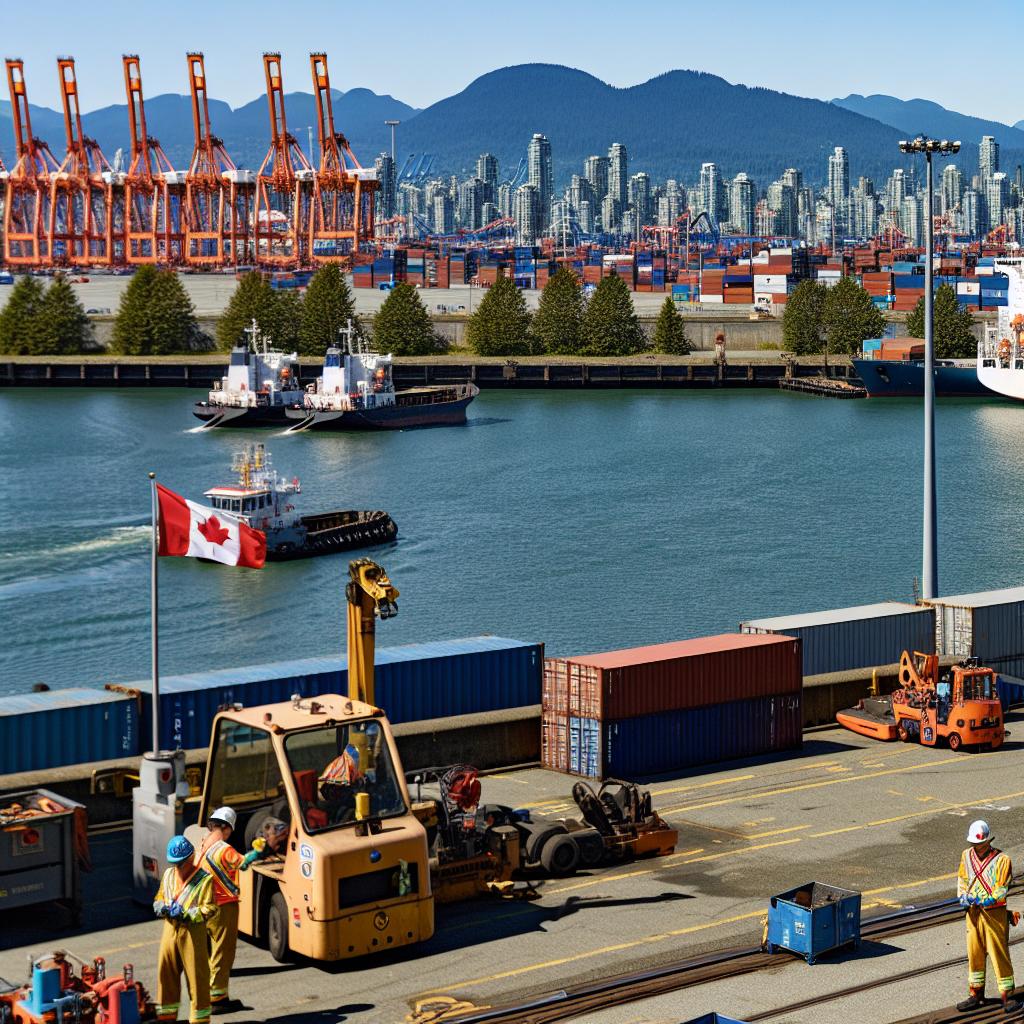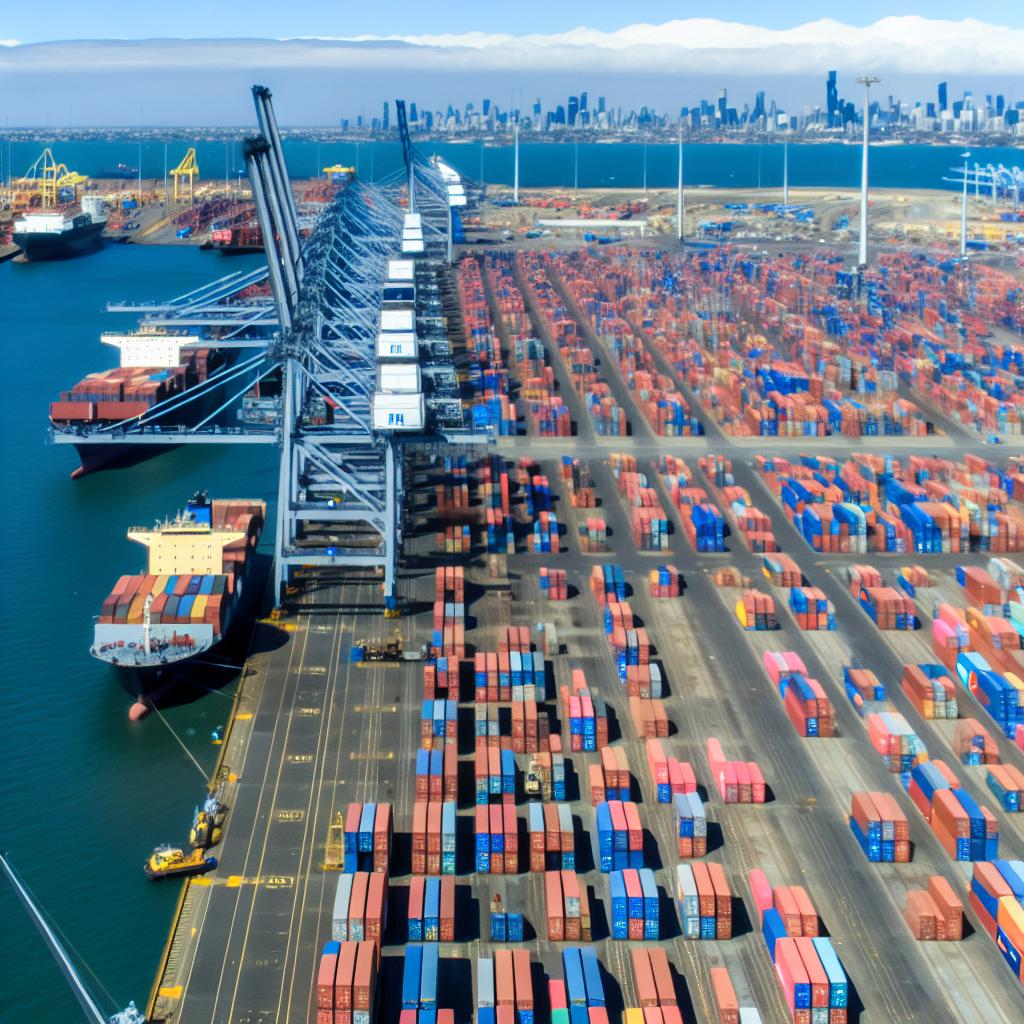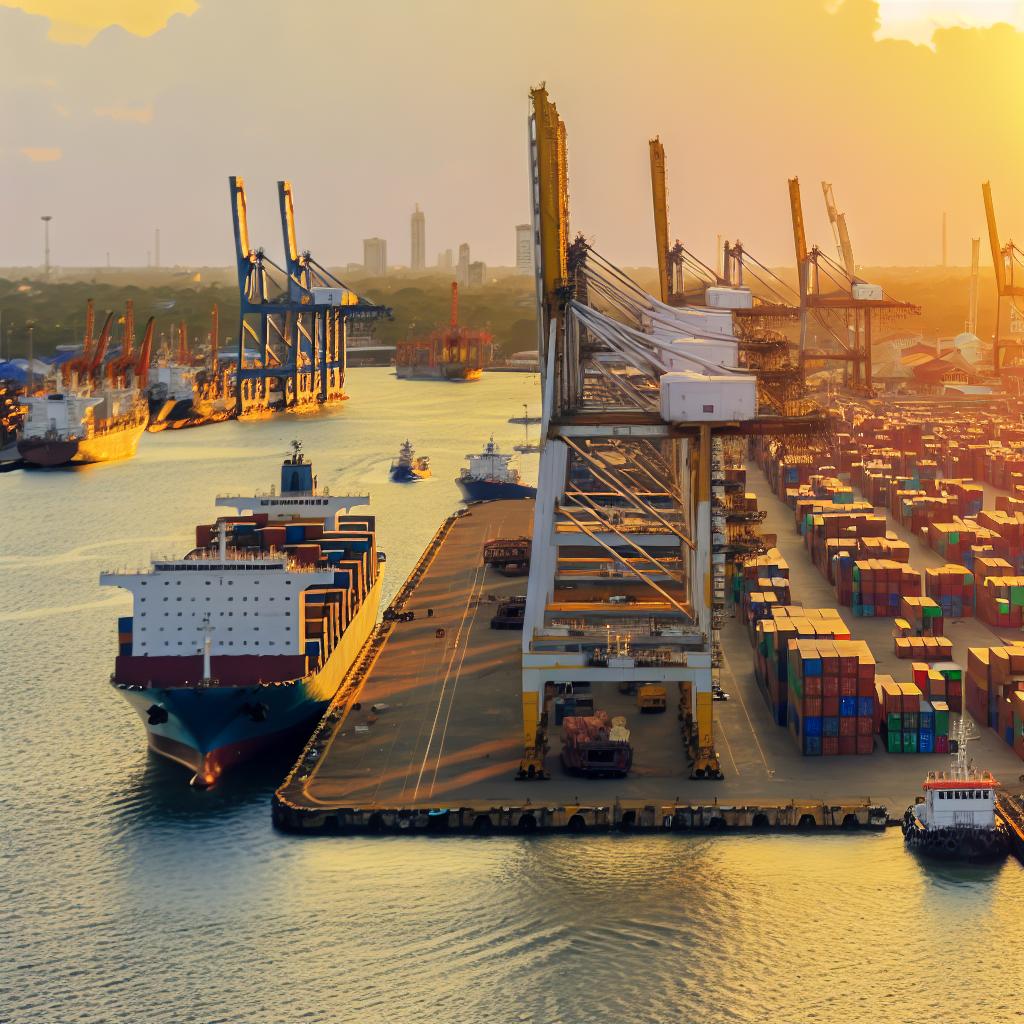Introduction
The Port of Felixstowe is the United Kingdom’s largest and busiest container port, playing a pivotal role in the international trade network. Located on the east coast of England, it serves as a vital gateway for goods entering and leaving the country. As a cornerstone of the global supply chain, it supports the seamless movement of goods that underpins modern commerce.
History and Development
Established in the late 19th century, the Port of Felixstowe has seen remarkable growth and transformation over the decades. Initially developed to handle general cargo, it has evolved into a major container hub that serves the needs of today’s intricate global shipping industry. The expansion has been marked by significant infrastructure investments and technological advancements, aligning with the growing demands of international trade.
In the early days, the port primarily focused on the movement of agricultural produce and raw materials. However, with the rise of containerization in the 20th century, Felixstowe underwent significant changes. By the 1970s, it had emerged as a leader in container shipping in the UK, setting the stage for future growth. This transition was driven by the global shift towards container shipping, which revolutionized logistics by offering more efficient cargo handling.
Geographical Advantage
This port’s geographic location provides a natural advantage, offering direct access to the North Sea. Its proximity to major European shipping lanes positions it strategically for traffic from across the globe. Furthermore, Felixstowe’s location is advantageous for inland connections, facilitating seamless access to major motorways and rail networks. This connectivity is critical for ensuring that goods can be transported quickly and efficiently to and from the port.
The strategic position of the port not only boosts its operational capacity but also enhances its competitiveness in the international market. Ports situated with ideal geographic advantages often become preferred choices for shipping lines, allowing them to optimize their routes and reduce transit times, a key factor in the maritime industry.
Infrastructure and Facilities
The port boasts advanced infrastructure that includes ultra-modern container handling equipment, extensive storage areas, and accommodation for the largest vessels afloat. The facilities have been designed to ensure efficient loading and unloading operations, reducing turnaround time and enhancing the efficiency of supply chains.
Significant investments in state-of-the-art infrastructure have enabled the Port of Felixstowe to handle some of the world’s largest container ships. This capability is supported by sophisticated container cranes and automated systems that streamline operations. Moreover, the port continues to invest in infrastructure development to keep pace with the dynamic needs of global trade.
In addition to handling enormous volumes of cargo, the port’s infrastructure supports logistical activities such as warehousing, customs clearance, and value-added services. These facilities are integral to positioning Felixstowe as a one-stop hub for shipping and logistics.
Role in the UK Economy
The economic impact of the Port of Felixstowe on the UK economy is significant. As a hub for international trade, it aids the import and export of goods that are crucial to various industries. The port supports thousands of jobs, both directly and indirectly, and is a key contributor to regional development.
Moreover, the port plays an integral role in the UK’s trading strategy, handling a significant percentage of the country’s containerized trade. This capability is crucial for businesses that depend on timely and reliable delivery of goods. The port’s role as a trade facilitator enhances the UK’s ability to participate actively in the global market, making it a vital component of national economic infrastructure.
Felixstowe’s operations contribute not only to the local economy but also to the nation’s fiscal health by boosting trade flows, creating employment, and generating revenue through its extensive trading activities. The port’s success is, therefore, intrinsically linked to the economic well-being of the UK.
Environmental Considerations
As with any major port, environmental management is a priority at Felixstowe. Initiatives are in place to minimize the environmental impact of operations, including reducing carbon emissions and managing noise pollution. The port is committed to sustainability, aiming to balance economic growth with ecological responsibility.
Efforts to reduce the port’s carbon footprint include the adoption of energy-efficient technologies and renewable energy sources. The port also engages in programs aimed at preserving local marine ecosystems and reducing waste. Such initiatives reflect its commitment to being an environmentally responsible actor in the global shipping industry.
Challenges and Future Prospects
Managing the increasing volume of global trade presents ongoing challenges for the Port of Felixstowe. Infrastructure expansion and technological advancements are key areas of focus to maintain competitiveness. Investment in automation, digitalization, and enhanced logistics solutions will play crucial roles in overcoming these challenges.
The port constantly explores innovative solutions, such as utilizing big data analytics to optimize logistics operations and deploying blockchain technologies for improving transparency and security in trade documentation. These technological advancements are critical to maintaining operational excellence and staying ahead in the competitive maritime industry.
Looking ahead, the port’s ability to adapt to changes in global trade patterns will be instrumental in defining its future success. Strategic planning and investment in infrastructure are essential to ensure the Port of Felixstowe remains a leading contender in the international shipping industry. This forward-looking approach involves not only expanding physical capacities but also enhancing operational efficiencies through smart technologies.
In conclusion, the Port of Felixstowe stands as a cornerstone of the UK’s international trade infrastructure. Its continued development will ensure its place at the forefront of the container shipping industry, facilitating economic growth and trade connectivity. By sustainably managing its operations and embracing future challenges, Felixstowe aims to secure its position as a pivotal player in the world of shipping for years to come.
